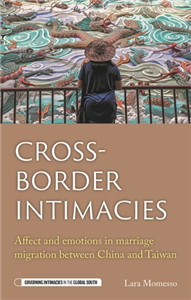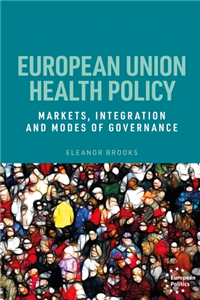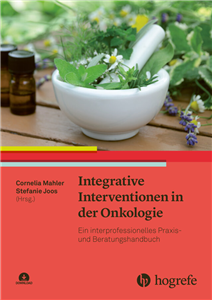Your Search Results
-
Canongate Books Ltd.
Canongate is an independent publisher: since 1973 we’ve worked to unearth and amplify the most vital, exciting voices we can find, wherever they come from, and we’ve published all kinds of books – thoughtful, upsetting, gripping, beatific, vulgar, chaste, unrepentant, life-changing . . . Along the way there have been landmarks of fiction – including Alasdair Gray’s masterpiece Lanark, and Yann Martel’s Life of Pi, the best-ever-selling Booker winner – and non-fiction too. We’ve published an American president and a Guantanamo detainee; we’ve campaigned for causes we believe in and fought court cases to get our authors heard. And twice we’ve won Publisher of the Year. We’re still fiercely independent, and we’re as committed to unorthodox and innovative publishing as ever. Please find the link to our latest Rights Guide with digitial content here: Rights Guide and our Canons Guide here: Canons Guide
View Rights Portal
-
Promoted ContentScience & MathematicsFebruary 2025
Assemblages of cancer
Experiences and contexts of breast cancer in the UK, France and Italy
by Cinzia Greco
Assemblages of cancer illustrates the tensions in the experiences and context of breast cancer in Western Europe. Breast cancer is presented as a success story in oncology, especially in countries with advanced, universal healthcare systems. At the same time, individual experiences are shaped by uncertainty, local variability of healthcare provisions, and the need for patients to assemble information about the treatments, knowledge on healthcare systems navigation, and different processes of meaning-making to manage the uncertainty and variability characterising individual outcomes. The book explores both how individual bodies and experiences are transformed by different local medical practices, institutions and discourses of breast cancer and how patients need to find their own way in these contexts. Assemblages of cancer is based on ten years of ethnographic work with patients and medical professionals in the UK, France and Italy.
-
Promoted Content2022
Coping Better with Cancer Therapy
Improved quality of life with the right vitamins and minerals
by Uwe Gröber and Prof. Dr. Klaus Kisters
Cancer patients often suffer from malnutrition. Not only do they lack energy-providing macronutrients such as protein, fats and carbohydrates, they particularly lack the micronutrients that regulate the metabolism. Micronutrients such as vitamin D, selenium, L-carnitine, omega-3 fatty acids and vitamin C significantly contribute to supporting the immune system of cancer patients, reducing inflammatory processes, alleviating the side effects of cancer therapy, and improving their quality of life. This patient guide provides information about the relationship between cancer, malnutrition, micronutrient deficiencies, the influence of cancer therapeutics on micronutrient balance, and how cancer patients can support their therapy and improve their quality of life with a controlled intake of micronutrient
-
 Trusted Partner
2020
Trusted Partner
2020The Cancer Patient in the Pharmacy
Advisory knowledge for pharmacy practice
by Edited by Dr. Dorothee Dartsch
The decision for cancer treatment has been taken and now a difficult time begins for the cancer patient: complex treatment regimens, side effects, fear. As a trusted confidant and competent point of contact in primary care, the pharmacist is called upon to play a key role. This collection of up-to-date articles provides support in the management of side effects from nausea to cardiotoxicity, gives assistance in interpreting warning signs of complications and highlights particular groups of patients such as pregnant women, geriatric, cachectic or palliative patients.
-
 Trusted Partner
Trusted Partner
-
 Trusted Partner
Health & Personal Development
Trusted Partner
Health & Personal DevelopmentAlone Is Not a Color
by Azimeh Maleki, Hannah den Hartog, Mira Maiworm, Kristina Wüstefeld
Ten-year-old Emma has cancer and is undergoing her first days in hospital. There are many feelings connected with this: she is worried about the treatment and misses home. Because she can’t go to a friend’s birthday party, she feels increasingly lonely. A conflict occurs with her roommate, but this resolves into a friendship. The two of them talk about their problems and are able to help each other. They start to make life on the children’s cancer ward as pleasant as possible. This book aims to help children affected by cancer to cope with their worries and feelings. It shows the children that they are not alone and that others are having a similar experience to theirs. For:• children of elementary school age(between 6 and 12 years) who havecancer• parents and relatives• therapists
-
 Trusted Partner
Trusted Partner
-
 Trusted Partner
Trusted Partner
-
 Trusted Partner
Trusted Partner
-
 Trusted Partner
Humanities & Social SciencesJuly 2025
Trusted Partner
Humanities & Social SciencesJuly 2025Cross-border intimacies
Affect and emotions in marriage migration
by Lara Momesso
Since the early 1990s, economic exchanges between China and Taiwan have paved the way to migration across a previously closed border and to social and cultural interactions between the two populations. Despite these broader changes, the unresolved issue of Taiwan sovereignty has tainted not only the relations between the two governments but also the everyday life of those who move across the Taiwan Strait. In this politicised environment, intimate and affective practices linked to cross-border marriage and family formation are never just private. Instead, they are deeply entangled with the emotional and affective processes generated at the macro and meso level of political and social life and revolving around national interests. Tracing the intimate, emotional and affective practices linked to family creation, identity formation and integration with the local and national communities, this ethnographic study offers a subjective, dynamic, and complex picture of what it means to be a mainland spouse in Taiwan.
-
 Trusted Partner
Humanities & Social SciencesJuly 2025
Trusted Partner
Humanities & Social SciencesJuly 2025European Union health policy
Markets, integration and modes of governance
by Eleanor Brooks
The first book-length analysis of EU health policy since the COVID-19 pandemic, encompassing the creation of the European Health Union and the Recovery and Resilience Facility, this volume offers a timely and accessible analysis of the EU's health policy, institutions and governance. Focusing on the EU's health objectives and how they are pursued, it offers a detailed overview of the development of EU health policy, and five in-depth case studies of specific policy fields. The book will appeal to academic and policy audiences interested in the EU's health objectives and how it pursues them.
-
 Trusted Partner
2018
Trusted Partner
2018Activating the Knee
120 exercises for osteoarthritis and after joint placement, injuries and surgery
by Joachim Merk and Thomas Horstmann
Activating the Knee provides 120 exercises to stretch, strengthen and improve mobility, with detailed photographs and clear instructions. They can be combined to create a personalized exercise program.
-
 Trusted Partner
August 2025
Trusted Partner
August 2025Flammensturm (Band 1) - Firebird
Alles verschlingende Dark Romantasy ab 16 Jahren - Historische Fantasy x epische Romance im antiken Rom - Mit exklusivem Lesezeichen und Farbschnitt in der 1. Auflage
by Juliette Cross, Kerstin Fricke
Ein Spiel zwischen Feuer und Leidenschaft Das erste Mal beobachtet der römische General Julianus die tanzende Malina auf einer Bühne, das zweite Mal entdeckt er sie auf einem verwüsteten Schlachtfeld. Und der Drache, der Julianus innewohnt, ist sich sofort sicher: Malina ist sein Schatz. Um sie vor seinen eigenen Soldaten zu retten, beansprucht Julianus sie für sich selbst und er bringt sie als seine Sklavin nach Rom. Dort angekommen, lernt Malina schnell, dass hinter dem brutalen Centurio mehr steckt, als auf den ersten Blick zu erkennen war. Und zwischen Geheimnissen und Intrigen entfacht ein Feuer aus Leidenschaft. Ein Feuer so heiß, dass es droht, sie beide ganz und gar zu verschlingen. Firebird ist der Auftakt einer feurigen Dark-Romantasy-Trilogie, die auf einer Neuerzählung der römischen Mythologie der Medusa basiert. Juliette Cross entführt ihre Leser*innen in die antike Welt des Römischen Reiches und begeistert mit Drachen, Gestaltwandlern, göttlichen Gaben und heißer Leidenschaft. Ein Muss für alle Fantasy-Liebhaber*innen!
-
 Trusted Partner
Trusted Partner
-
 Trusted Partner
Trusted Partner
-
 Trusted Partner
Trusted Partner
-
 Trusted Partner
Trusted Partner
-
 Trusted Partner
Trusted Partner
-
 Trusted Partner
Trusted Partner
-
 Trusted Partner
Trusted Partner
-
 Trusted Partner
Health & Personal Development
Trusted Partner
Health & Personal DevelopmentIntegrative Interventions in Oncology
An Interprofessional Practice and Counselling Manual
by Cornelia Mahler / Stefanie Joos (Eds.)
Relief for body and mind – this handbook brings together proven, non-pharmacological interventions to support people living with cancer. From phytotherapy to compresses and lifestyle advice, it offers evidence-based tools for managing 21 symptoms and includes 88 illustrated “Infozepte” to guide patient care and communication. • Integrative treatments from acupressure to herbal teas • Practical support for 21 cancer-related symptoms • 88 illustrated guides for patient counseling and care























